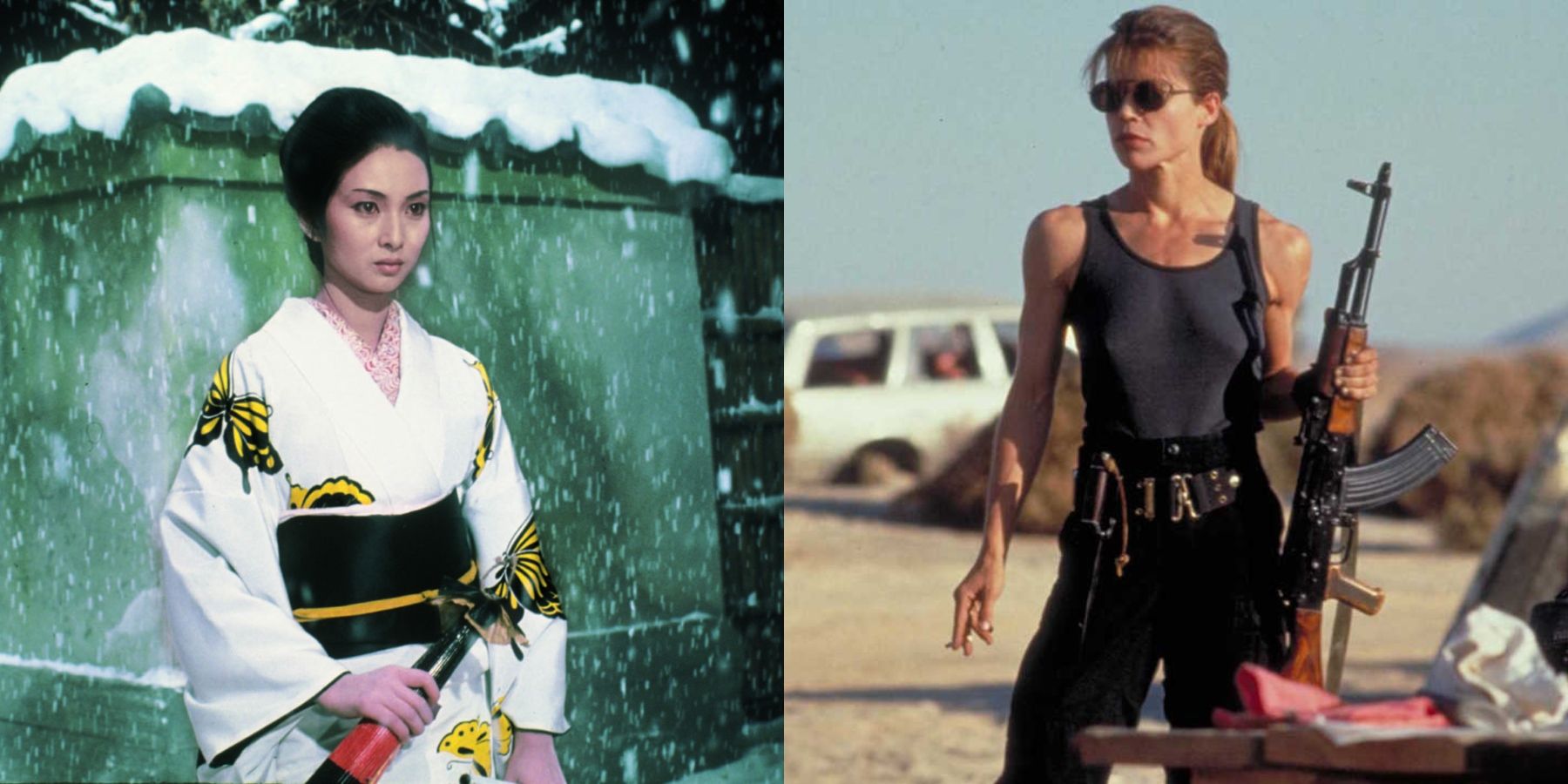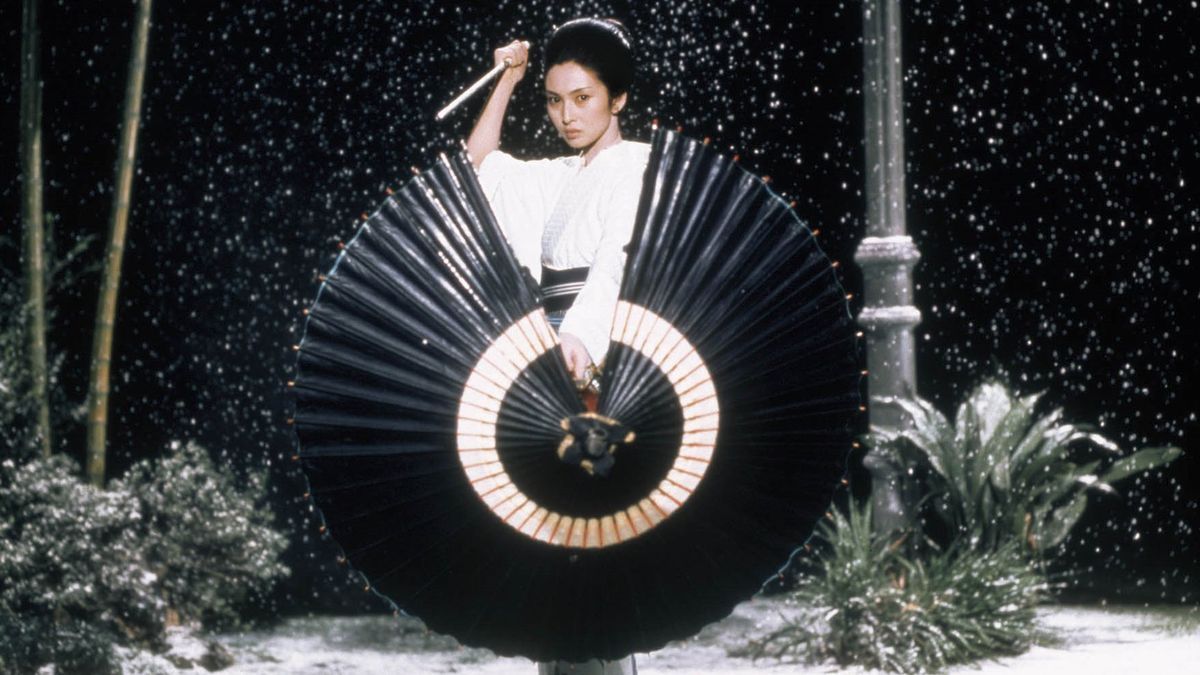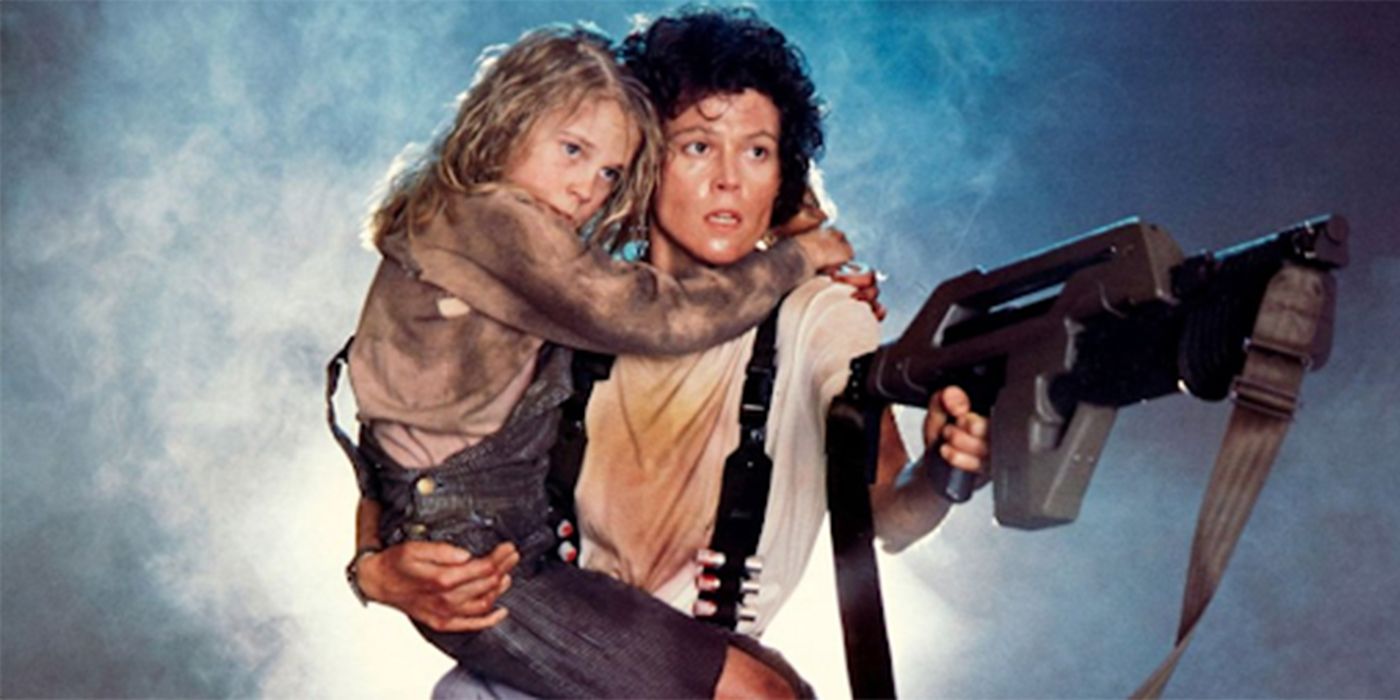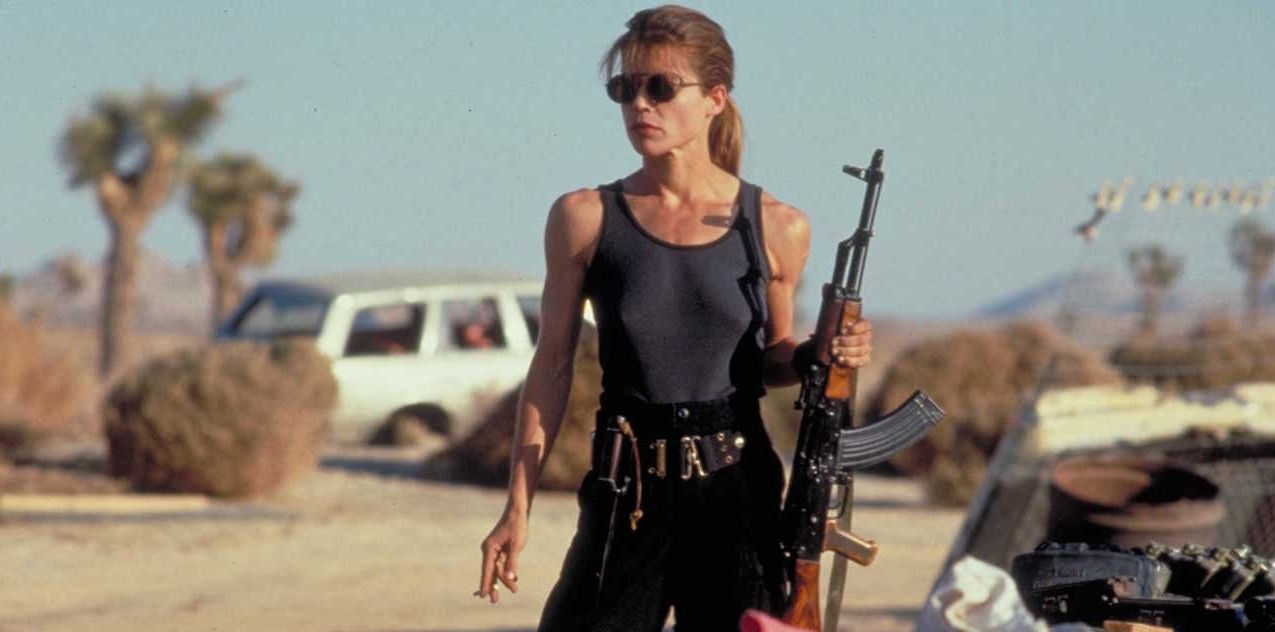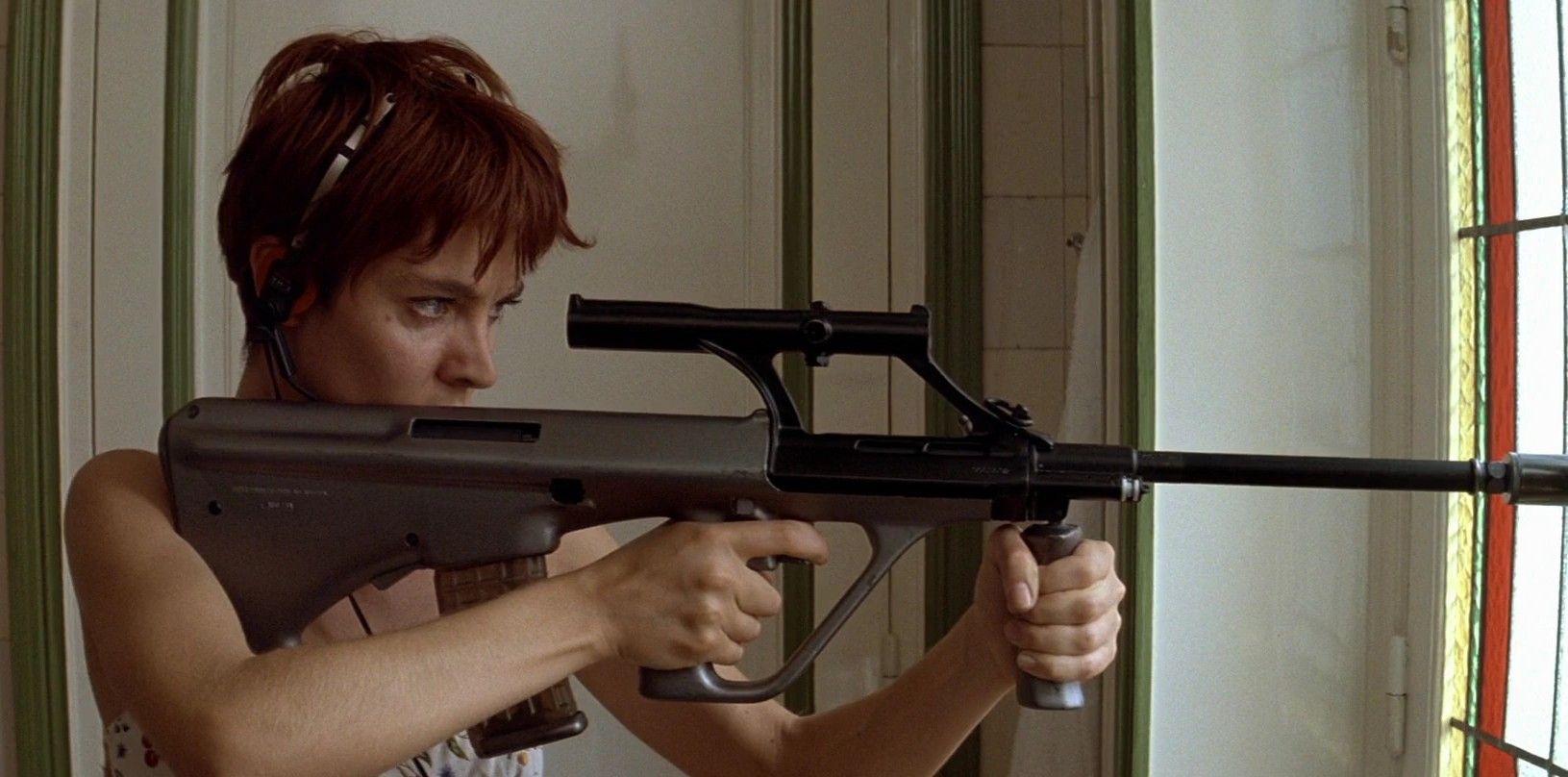There are some who still believe that women are not viable action stars, and that making action films with women as the leads is a major risk. Female-led action movies continue to do well and prove the naysayers wrong, as they have for decades. Black Widow, Gunpowder Milkshake, The Old Guard, Captain Marvel, and Wonder Woman are only a few of the successful action films starring women in the past few years.
The number of female-led action movies in the past few decades has increased massively. In the 1970s and 1980s, while many female action stars were seen on television in shows such as Wonder Woman, Charlie's Angels, and The Bionic Woman, there were far fewer action heroines on the big screen. It was less of a risk to portray women as action stars in the lower budget and less "prestigious" realm of television.
The movies listed below feature female leads that have become some of the most iconic and influential female characters in action cinema. The movies themselves are highly beloved and have gone on to inspire so many works in the decades following, and will no doubt continue to do so in the years to come.
Lady Snowblood (1973)
Lady Snowblood is a Japanese period drama directed by Toshiya Fujita and based on a manga series of the same name. It stars Meiko Kaji, a Japanese actress and singer who played many outlaw characters in Japanese films in the 1970s. The film tells the story of Yuki, a young female assassin who seeks vengeance on the people who raped her mother and murdered her father and brother. The narrative is told out of chronological order and the film is full of drama, dark humor, and intensely bloody action sequences. Despite being produced on a relatively low budget, the film did quite well and even spawned a sequel, Love Song of Vengeance, in 1974.
Lady Snowblood may sound familiar to Quentin Tarantino fans. This movie famously heavily inspired the director's Kill Bill films, another set of now-iconic female-led action flicks. Tarantino allegedly told his cast and crew to watch the film even during filming, to remind them of what kind of movie they were making. He paid homage to Lady Snowblood through his cinematography as well as through featuring songs by star Meiko Kaji in Kill Bill, including the song that was the theme of Lady Snowblood.
Alien (1979) and Aliens (1986)
These science-fiction/horror films are the first in what would later become a long-running franchise. The first film, Alien, was directed by Ridley Scott, also known for films such as Blade Runner and Gladiator, and written by Dan O'Bannon. Aliens, which followed the first movie after years of delayed development, was written and directed by James Cameron.
The first movie follows the crew of the commercial spaceship Nostromo who come across an alien ship on a nearby moon containing many egg-like objects. One breaks and the titular alien springs from it, attaching itself to one of the crew. They must fight against the aggressive and deadly alien as it is let loose on the ship. One of the main crew members is the Warrant Officer of the ship, Ellen Ripley, as played by Sigourney Weaver.
In Alien Ripley takes command, but she really comes into her own as a character in the sequel, Aliens. Having put herself in stasis at the end of the events of the first movie, Ripley wakes up after 57 years, the sole survivor of what happened on her ship. She ends up having to investigate the same moon where she and her team encountered the alien species, this time with a team of Colonial Marines.
Weaver has stated that she thinks Aliens is the best-constructed story for Ripley out of the films she appears in, the role even gaining her an Oscar nomination. Ripley is still considered one of the most influential female action heroes of all time, holding her own in an era full of hyper-masculine action movie stars.
The Terminator (1984) and Terminator 2: Judgment Day (1991)
Terminator has also become an iconic and long-running franchise, spawning several films as well as a television series. Both The Terminator and Terminator 2: Judgment Day (or T2) were directed by Aliens director James Cameron. In The Terminator, Arnold Schwarzenegger starred as a cyborg assassin sent back in time to kill Sarah Connor (Linda Hamilton), whose future son will one day save mankind from extinction by hostile artificial intelligence. Michael Biehn plays Kyle Reese, a soldier sent back in time to protect Sarah.
In T2, Sarah Connor and her now ten year old son John are pursued by a new advanced Terminator, played by Robert Patrick. Schwarzenegger returns as an older-model Terminator who was sent back in time by the Resistance, reprogrammed to protect John instead of kill him.
In the first movie, Sarah is far more vulnerable and spends much of the movie being protected by Kyle Reese. She is, understandably, unprepared for the war that she finds herself caught in the middle of. By the time of the second movie, Sarah has spent a decade becoming a fierce and hardened fighter, training and learning from whoever she can. She is far more jaded and even begins the movie having been institutionalized.
Sarah changes and evolves between films, but also over the course of each movie, which is satisfying and riveting to watch. Sarah Connor is an interesting and complicated character, and she remains one of the most iconic action heroines on film to this day.
La Femme Nikita (1990)
La Femme Nikita is a French action-thriller film directed by Luc Besson, later known for movies such as Leon: The Professional, The Fifth Element, and Lucy. French actress Anne Parillaud plays the titular character, Nikita. Nikita is a teenage criminal who gets sentenced to life in prison for murder after a robbery she takes part in goes very wrong. Instead of leaving her to live out her sentence, government handlers fake her death and recruit her as a professional assassin. Nikita is a fierce fighter, all at once strong, seductive, vulnerable, and lethal. The film was very successful in French speaking countries but also found a significant audience in the United States.
La Femme Nikita inspired several remakes over the years. In 1993, Bridget Fonda starred in an American remake of the film, entitled Point of No Return. The film did fairly well, but generally was considered inferior to the original. The original movie was turned into a Canadian television series, also called La Femme Nikita, in 1997. The show ran for five seasons, seeing modest ratings success during the first few seasons. The movie was remade into a television series yet again in 2010 by The CW. Entitled Nikita, the show starred Maggie Q as a version of Nikita who went rogue from the organization where she worked as an assassin. The show ran for four seasons to much success.

